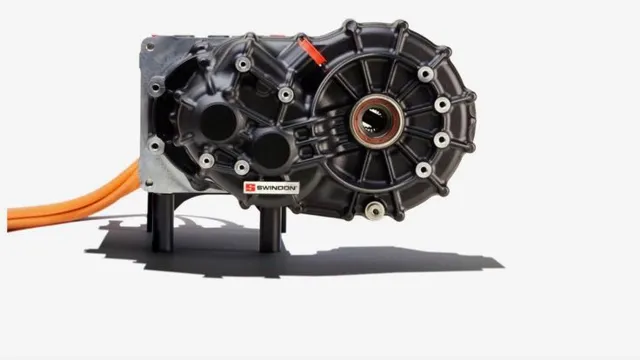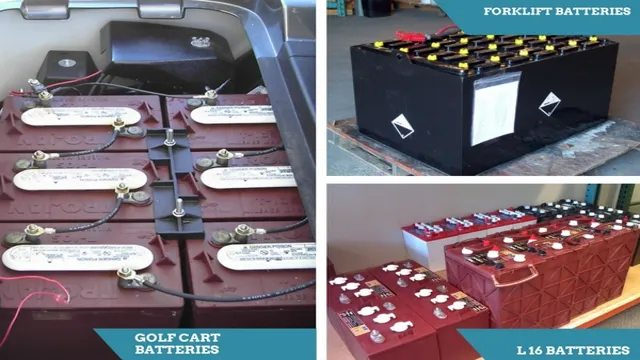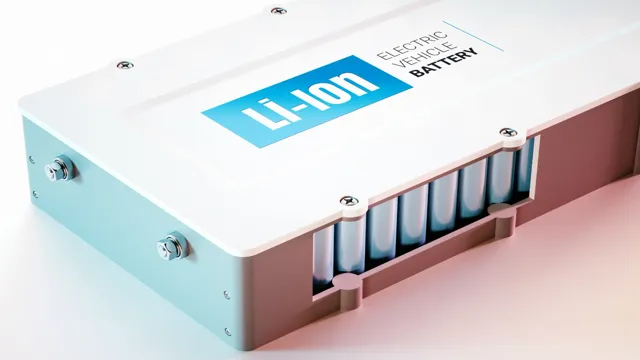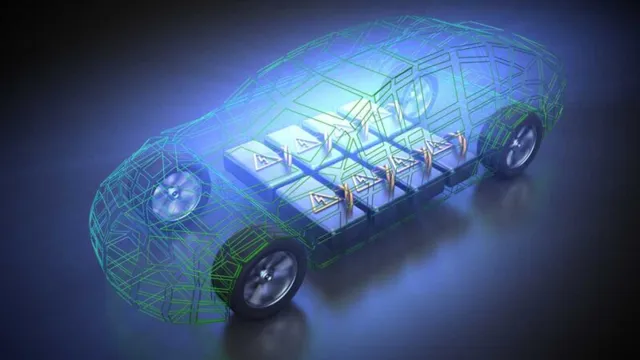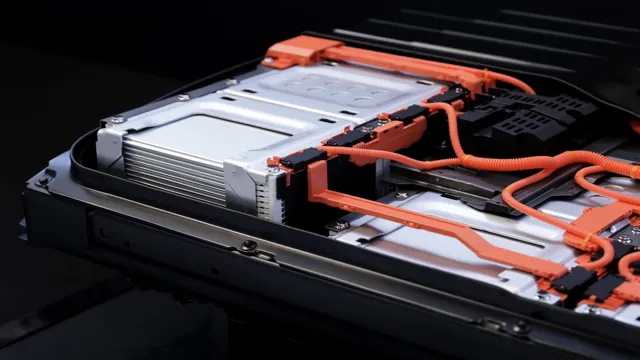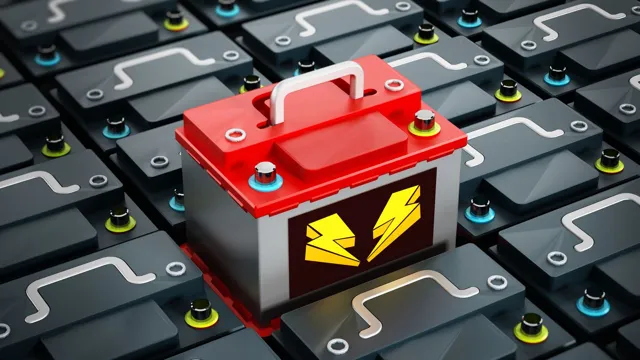Revolutionizing India’s Automotive Industry: All You Need to Know About Electric Car Battery Prices
Electric cars are becoming increasingly popular in India, owing to their eco-friendliness and efficiency. As a result, more and more people are starting to consider purchasing an electric vehicle instead of the traditional fuel-driven cars. However, one of the main concerns that Indian car buyers have is the price of the electric car battery, which is an essential component of an electric vehicle.
The battery constitutes a significant portion of the total cost of an electric car, and the cost can vary depending on the type and capacity of the battery. The good news is that electric car battery prices in India have been steadily decreasing in recent years, making them more affordable for the average consumer. This decrease in cost is mainly due to advancements in technology, economies of scale, and government initiatives aimed at promoting electric vehicles in the country.
In this blog, we will delve deeper into the prices of electric car batteries in India and show you how they compare to the prices of traditional cars. We will also discuss the factors that influence the cost of an electric car battery and how they affect the overall cost of an electric vehicle. By the end of this blog, you will have a comprehensive understanding of the electric car battery prices in India and be better equipped to make an informed decision when buying an electric vehicle.
So, let’s get started!
Overview of the electric car market
The electric car market in India has seen significant growth in recent years, with increasing demand for environmentally friendly and fuel-efficient vehicles. One major factor that affects the market is the cost of electric car batteries. Battery prices have been a significant barrier to the widespread adoption of electric cars in India, with prices being higher than the average income of many consumers.
However, there has been a recent trend of decreasing battery prices due to advancements in technology and increased competition among manufacturers. As a result, more affordable electric cars are becoming available in the Indian market, making them more accessible to a wider range of consumers. Despite this progress, cost is still a primary concern for many potential buyers, and it remains to be seen how quickly and widely electric cars will be adopted in India.
Current demand for electric cars
Electric cars have been gaining a lot of attention in recent years, and it’s easy to see why. With concerns over climate change and the rising cost of fuel, more people are looking for sustainable and cost-effective alternatives to traditional gasoline-powered vehicles. As a result, the demand for electric cars has been steadily increasing, and many automakers are starting to shift their focus toward developing new electric models.
This has led to a boom in the electric car market, with sales expected to increase significantly in the next few years. As consumers become more environmentally conscious and cost-conscious, electric cars are proving to be a popular choice for many individuals and families. From small electric vehicles for urban commuting to larger, more luxurious models for longer trips, there is a wide range of electric cars available to suit different needs and preferences.
Overall, the future of the electric car market looks bright, and it’s an exciting time for those looking to make the switch to a more sustainable and efficient mode of transportation.

Top electric car brands in India
Electric car market in India India is quickly becoming a hub for electric car manufacturers as the country is trying to reduce its carbon footprint and transition to cleaner energy sources. The Indian government has launched various incentives and programs to promote electric cars, including the Faster Adoption and Manufacturing of Electric Vehicles (FAME) program, which plans to invest Rs 10,000 crore to drive the adoption of electric vehicles in the country. As a result, numerous electric car brands have emerged in India, including Mahindra Electric, Tata Motors, and MG Motor.
Mahindra Electric, the first electric car manufacturer in India, boasts a wide range of models, including e2o Plus and e-Verito, while Tata Motors launched its Nexon EV, Tata Tigor EV, and Tata Altroz EV, which are becoming increasingly popular among car buyers. Additionally, MG Motor launched the MG Hector EV and MG ZS EV models, which have been well-received in the Indian market. Overall, the future of the electric car market in India looks bright with the emergence of new and innovative electric car models.
Factors influencing electric car battery prices
The rising popularity of electric vehicles in India has led to an increase in the demand for efficient and cost-effective electric car batteries. The price of electric car batteries in India is determined by several factors, including the size and capacity of the battery, the technology used to manufacture it, and the availability of raw materials. Another significant factor that affects the price of electric car batteries is the economies of scale associated with the mass production of electric vehicles.
As more and more automakers invest in electric vehicles and ramp up production, the cost of electric car batteries is expected to decrease significantly. Additionally, the government’s initiatives and policies promoting the adoption of electric vehicles in India are also crucial in driving down the prices of electric car batteries. Overall, as the electric vehicle market continues to grow in India, the prices of electric car batteries are expected to decrease, making them a more affordable and viable option for consumers.
Battery type and capacity
The cost of an electric car battery is influenced by many factors, including the type and capacity of the battery. Lithium-ion batteries are currently the most widely used battery type in electric cars due to their high energy density and long life span. However, their price depends on the availability of raw materials such as lithium and cobalt.
As for battery capacity, the more energy a battery can store, the higher its cost. Larger batteries will also increase the weight and size of the car, which can affect performance and range. Battery prices can also be influenced by economies of scale, as larger production runs can reduce unit costs.
Other factors such as government incentives and subsidies can also affect battery prices. Ultimately, the cost of an electric car battery is a major contributor to the price of the vehicle, but as technology advances and demand increases, prices are expected to fall.
Cost of production and availability of materials
When it comes to the cost of production and availability of materials, there are several factors that influence electric car battery prices. One such factor is the availability and price of raw materials needed to produce batteries. For example, the cost of lithium, which is a key component in electric car batteries, has been known to fluctuate dramatically in the past few years, causing battery prices to change accordingly.
Another factor is the economies of scale achieved by battery manufacturers. As production volumes increase, the cost of producing each unit decreases, leading to cost savings that can be passed on to consumers. Additionally, advancements in technology and manufacturing processes can lead to further cost reductions in the long run.
However, until these economies of scale and technological advancements are fully realized, the cost of electric car batteries is likely to remain high. So while electric vehicles offer many benefits, including reduced emissions and lower fuel costs, the upfront cost of purchasing an electric car may be a significant barrier for some consumers.
Government subsidies and incentives
Government subsidies and incentives have been recognized as crucial factors that affect the price of electric car batteries. As the demand for electric vehicles increases, governments provide financial incentives to manufacturers in order to reduce the cost of production. In addition, governments offer tax credits, incentives, and subsidies to encourage consumers to switch to electric vehicles.
The availability of these subsidies and incentives varies from country to country and even from state to state. For instance, in the United States, federal tax credits of up to $7,500 are offered to electric vehicle buyers, while in China, electric vehicle manufacturers can get government subsidies of up to $8,000 depending on the range of the vehicle. These incentives and subsidies make electric vehicles more affordable and attractive to consumers, which in turn drive down the price of electric car batteries to a point where they become competitive with fossil fuel-powered cars.
Average prices for electric car batteries in India
As more and more drivers in India make the switch to electric vehicles, the cost of electric car batteries has become an important consideration. The average price for an electric car battery in India is currently around 4-5 lakh rupees, which is roughly $5,500-$6,800. This may seem like a significant investment, but it’s important to keep in mind that electric vehicles are much cheaper to maintain and operate than traditional gas-powered cars.
Plus, as demand for electric cars continues to rise, we can expect battery prices to decrease over time. It’s also worth noting that some Indian states offer subsidies and incentives to help offset the cost of electric vehicles and their batteries. So while the upfront cost may seem daunting, the long-term savings and environmental benefits make electric cars and their batteries a smart choice for many drivers in India.
Comparison between different types of batteries
When it comes to electric car batteries in India, the average prices can vary greatly depending on the type of battery used. Lead-acid batteries are the most commonly used and affordable option, with prices ranging from 10,000-20,000 INR ($135-$270 USD). However, they have a shorter lifespan and lower energy density compared to lithium-ion batteries.
Lithium-ion batteries are the more advanced and expensive choice, with prices ranging from 40,000-80,000 INR ($540-$1,080 USD). They have a longer lifespan and higher energy density, making them more efficient and suitable for electric vehicles. Nickel-metal hydride batteries fall in between the two options, with prices ranging from 20,000-40,000 INR ($270-$540 USD).
Ultimately, the type of battery chosen will depend on the needs of the vehicle owner, budget, and individual preferences.
Price ranges for popular electric car models
When it comes to electric cars, the prices can vary quite a bit depending on the make and model. Some of the more popular electric car models in India include the Tata Nexon EV, MG ZS EV, and the Hyundai Kona Electric. The Tata Nexon EV has an average price of around 15 lakhs, the MG ZS EV is priced at around 21 lakhs, and the Hyundai Kona Electric has an average price of around 23 lakhs.
But what about the battery prices for these electric cars? On average, a battery for an electric car in India can cost around 5 lakhs, although this can vary depending on the brand and size of the battery. However, it’s important to note that while electric car prices may be higher initially, the savings on fuel costs and reduced environmental impact can make them a worthwhile investment in the long run.
How to save money on electric car batteries in India
Electric car battery price in India can be a financial barrier for many potential EV buyers. However, there are ways to save money on electric car batteries. One way is to opt for a battery leasing program instead of buying the battery outright.
This allows you to pay a monthly fee for the use of the battery, which can significantly reduce the initial cost of buying an EV. Another way to save money on electric car batteries is to purchase a used battery. While this may sound risky, most manufacturers guarantee the performance of their used batteries and offer warranties.
Additionally, you can purchase refurbished batteries that have been professionally inspected and reconditioned. Finally, some states in India offer subsidies and incentives for EV buyers, which can further reduce the cost of electric car batteries. By exploring these options, you can save money on your electric car battery and make the switch to zero-emission driving without breaking the bank.
Conclusion
In conclusion, the price of electric car batteries in India may currently be expensive, but just like any new technology, the costs are sure to decrease as demand and innovation increases. We can say that the future of transportation is charged up and electrifying, and it’s only a matter of time before we see electric cars dominating the Indian roads. So, let’s plug in, sit back, and watch the sparks fly!”
FAQs
What is the current price range for electric car batteries in India?
The price range for electric car batteries in India can vary depending on the capacity and brand, but generally ranges from Rs. 3 lakhs to 10 lakhs.
Are there any government subsidies available for electric car batteries in India?
Yes, the Indian government offers subsidies for electric car buyers under the FAME (Faster Adoption and Manufacturing of Hybrid and Electric Vehicles) scheme, which includes incentives for purchasing electric car batteries.
How often do electric car batteries need to be replaced in India?
The lifespan of an electric car battery can vary depending on usage and maintenance, but typically ranges from 5 to 10 years. Replacement costs can also vary depending on the make and model of the car.
Are there any alternative options to purchasing a new electric car battery in India?
Yes, some companies in India offer battery swapping services where drivers can exchange their depleted battery for a fully charged one. This can be a more cost-effective and convenient option for some electric car owners.


